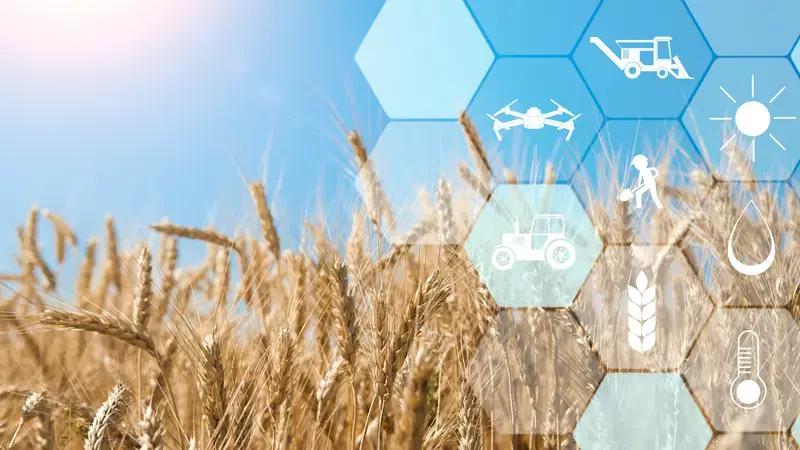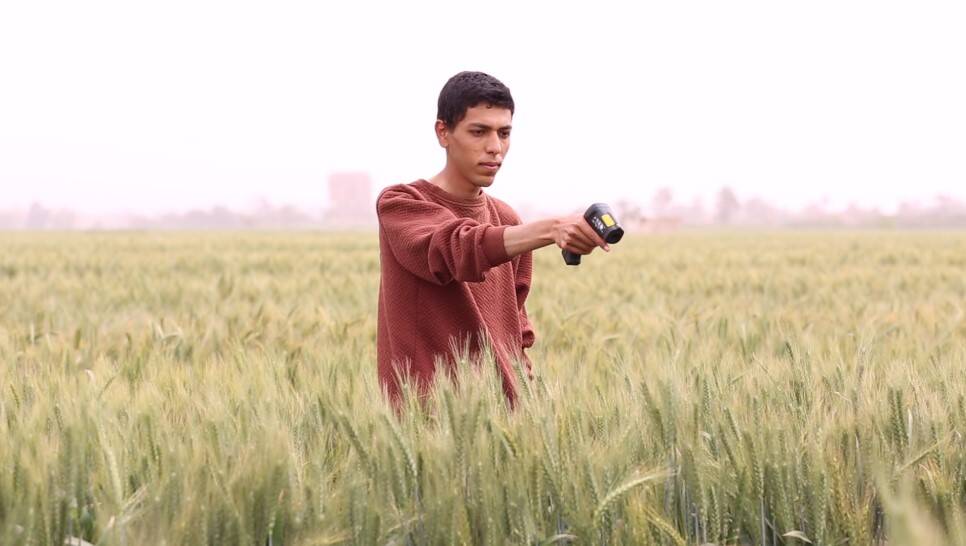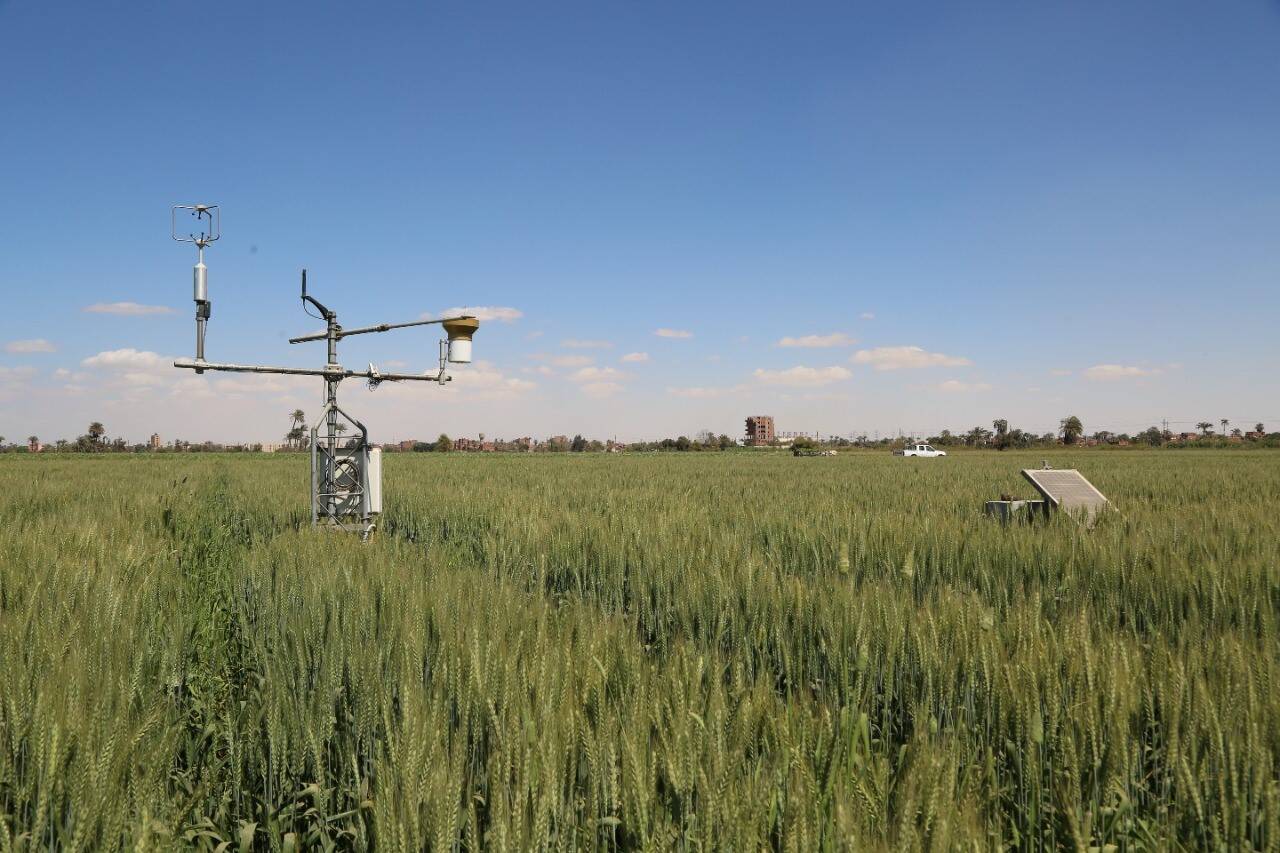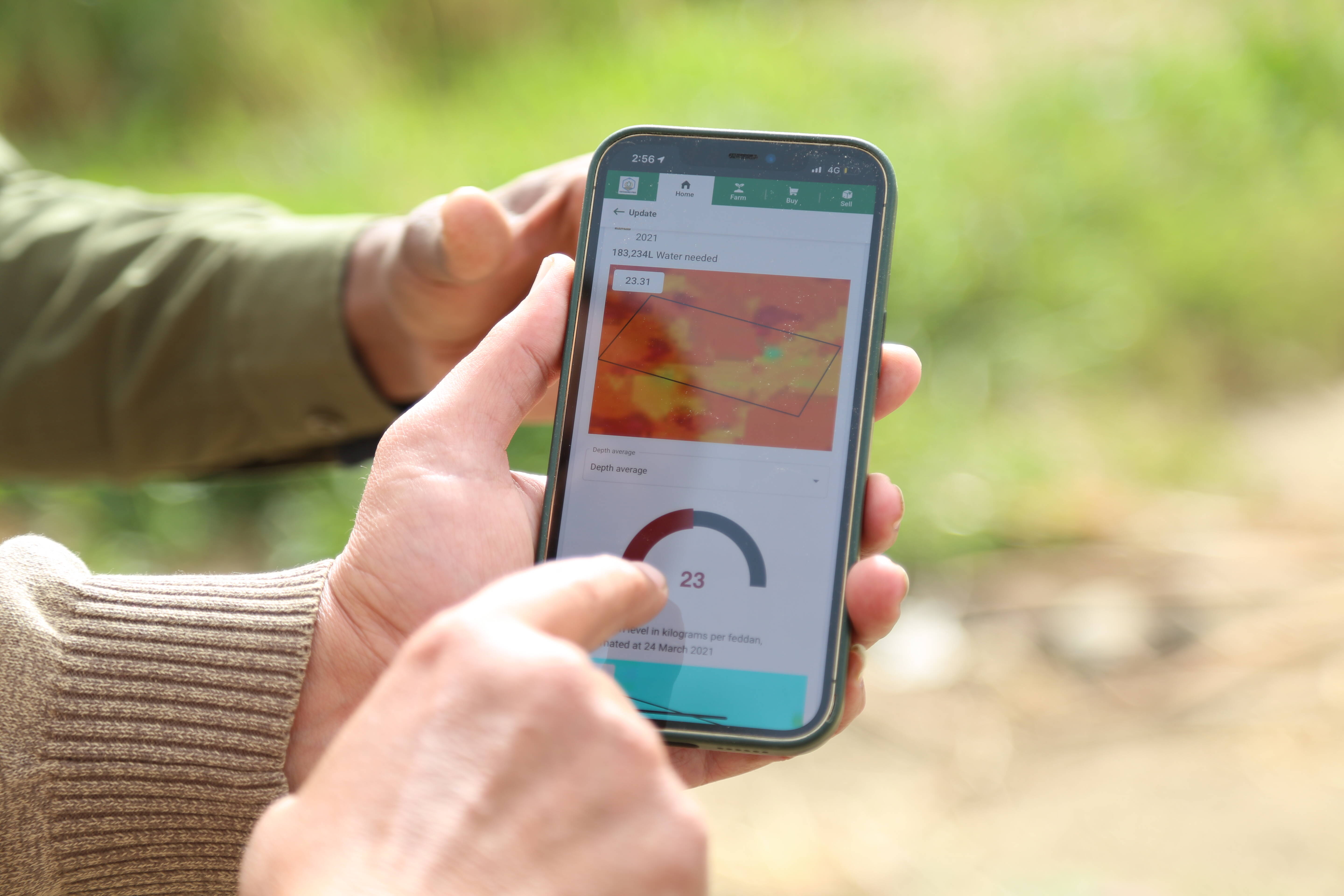Precision Farming: Vast Potential for Small Farmers

By Vinay Nangia, ICARDA Research Team Leader in Soils, Waters, and Agronomy
Precision farming, which leverages advanced digital tools and breakthroughs in big data analytics, machine learning, and artificial intelligence to fast-track value creation by saving on input costs, is also an option for small-scale farmers.
The vast majority of the billion people currently employed in agriculture reside in the Global South, where they operate on pint-sized, fragmented lands.
Agricultural development is one of the most efficient levers in emerging economies to rescue people from extreme poverty while feeding growing populations. According to the World Bank, growth in the agricultural sector is two to four times more effective than that of other sectors in raising incomes among the poorest.
Precision farming leverages advanced digital tools and breakthroughs in agricultural big data analytics, machine learning, and artificial intelligence to fast-track value creation for farmers by saving on input costs.

This approach, which observes and responds to yield, moisture levels, and soil quality variations across a field, relies on analyzing data collected by sensors, drones, satellite imagery, GPS, IoT devices, and other geospatial tools that scrutinize land plots for anomalies and inefficiencies.
Different sensors will procure information on air and temperatures, rainfall, soil moisture and chemical composition. Simultaneously, satellites, smart cameras, and robotic drones share images of individual plants to determine if they are healthy.
With precision farming, farmers can spot ailing crop patches caused by uneven terrain or disparities in sun exposure and moisture levels. Sensors now know if the soil is dry, handheld ones can determine if leaves lack nitrogen, and drones and cameras identify weaker spots on the field and insect or disease outbreaks.
While sleek autonomous tractors and other state-of-the-art agricultural 'robotics' equipment remain unaffordable to most of the world's farmers, the core principles of precision farming remain applicable and accessible to small-scale farms in developing countries – if these principles and technologies are customized and contextualized to local socioeconomic situations.

ICARDA scientists have long researched precision farming and ICT for agriculture, using open-source data, low-cost sensors and weather stations, evapotranspiration measurement devices, and SMS-based and interactive voice response systems to provide farmers with personalized advisory and early warning information.
Water scientists, agronomists, entomologists, GIS analysts, breeders, and economists pooled this precious knowledge to establish ICARDA's first precision farming one-stop shop in Amlaha, at the ICARDA research station located in the central Indian state of Madhya Pradesh.
Following an official agreement with the Indian state government, ICARDA is now launching a pilot project to use precision agriculture tools to increase farmers' income across Madhya Pradesh, known for having the highest agricultural growth rate in India.
Embracing digital technologies can help local farmers achieve ambitious targets set by Indian Prime Minister Narendra Modi to double farmers' incomes by the end of 2022.
The three-year pilot project will span irrigated and rainfed agro-ecologies and focus on the most economically important crops in Madhya Pradesh; namely cotton, wheat, and soybean.
All the data from precision farming tools relative to farmers' fields will be channeled to Amlaha's precision farming control room. It will be analyzed before messages are sent to farmers to advise on optimum times to irrigate and when to apply fertilizer or insecticide.

The early warning service can alert farmers to incoming pest invasions or other types of outbreaks, helping them make informed choices about the level of intervention they require.
The project is tailored to the low-income of farmers in the region. Poor farmers adopt new technology only if it is low-cost, low-maintenance, robust, easy-to-scale, and simple to manage and operate. The digital tools chosen for the project are durable, cheap, and efficient, and they have been tested in a range of conditions to prove their stability and consistency.
A goal of the research that ICARDA and its partners carry out is to provide enough evidence and argument to convince farmers to adopt innovations. This suite of precision farming solutions will offer the opportunity to spend less on inputs and use available resources more efficiently, leading to an overall sustainable increase in farm income.
---------------------------------------
ICARDA is grateful to the Indian State Government of Madhya Pradesh for their invaluable support of this pilot project on precision agriculture.
